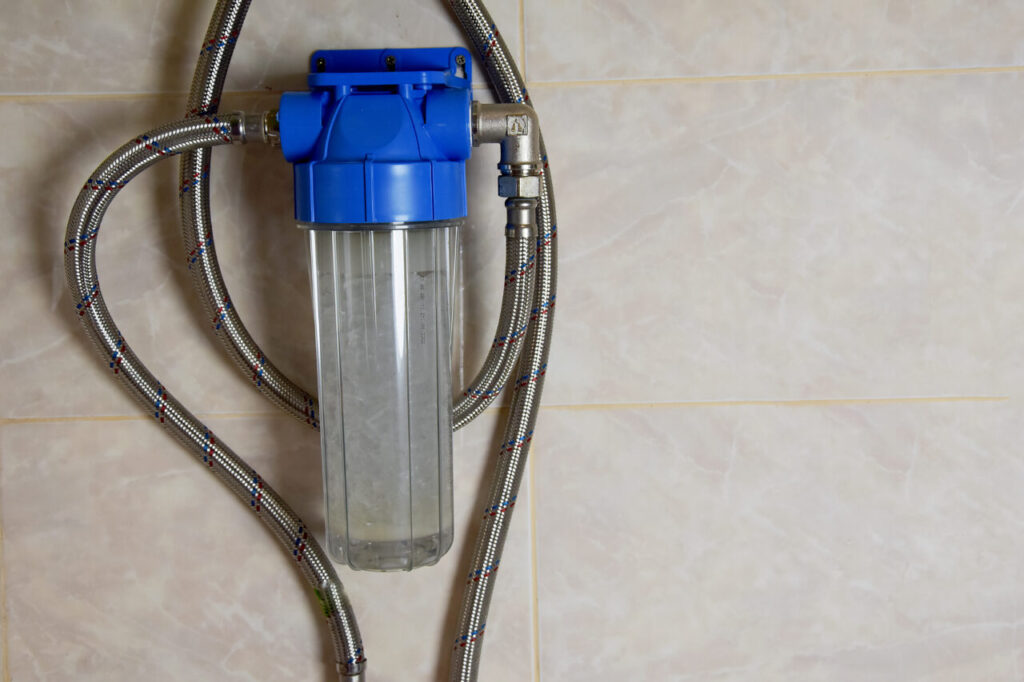Your home’s faucets and plumbing appliances receive water that has been filtered and treated. The alternative is to use groundwater from a well, where you probably have your system for treating the water. Homeowners from Louisville to L.A do not always realize that a water softener may be the only way to resolve their hard water issues, regardless of which situation they find themselves in.
As the name suggests, hard water refers to water with a high concentration of minerals, such as magnesium, calcium, and iron. Do not worry about these minerals being harmful because they are, in fact, harmless to ingest. Despite that, they can be extremely dangerous regarding your plumbing system and quality of life.Besides causing plumbing leaks, hard water can also fade clothing in the washing machine.
Installing a water softener is a simple and direct method of solving the hard water problem. This device is attached to your plumbing system and uses salt crystals to create a softer water texture. The salt leaches into the system, making your water palatable and easier on the plumbing systems in your home.
Sometimes you might have problems with your water quality. It’s just part of owning a home. It may be time to repair your water softener if you’re experiencing dry skin, low water pressure, and white film in your appliances. Maintaining your water softener with the help of the professionals at Jarboe’s Louisville can help improve your quality of life. Here are a few signs you need to fix your water softener.
White Film
A hard, chalky substance called scale can build up in your plumbing and appliances that use water. There is a reason for this hard water containing a lot of calcium and magnesium, which is the source of the problem. There might also be times when you notice that your dishes are covered in water marks after they have been washed. In most cases, if this happens, you should have your water softener repaired.
Less Salt Usage
If you continue to use your water softener for a long time without having to refill your container, it may indicate a problem. Since it is generally a gradual process over time, you won’t notice this change immediately. It’s best to monitor your system over a few weeks. If you haven’t changed your water usage but are using less salt, this may indicate that your system isn’t working efficiently. In case you are adding salt every two or three months instead of every month, you may want to check it out.
Dry Skin
Minerals that settle on the surface of hard water have a negative effect on the health of the skin and hair. As soap does not dissolve well in hard water, it cannot remove these deposits as effectively as it can in soft water. It is possible for your skin to become dry and leathery due to the residue left behind by hard water. Having problems with your water softener could result in drier skin and hair. The problem is even more pronounced if you have tried changing soap without success.
Less Suds
When your water softener needs to be repaired, your soap may not lather up as it usually does. The amount of detergent you use to get enough bubbles may need to be increased when washing dishes. You may find that you are going through more dish detergent when your water softener is malfunctioning.
Shampoo and body wash may not lather up well when you are showering. As a result, your hard water reacts with your soap to form a scum that doesn’t dissolve in water. Due to this scum, less soap is left to create bubbles. Like soap, some of your detergents are used up reacting to calcium and magnesium, so less remains for bubbles when you use detergent instead of soap.
Reduced Water Pressure
Your pipes can become clogged over time if you have hard water in your home. With the accumulation of these deposits, over time, your pipes will become progressively smaller, resulting in less water flowing through them as the diameter of the pipes decreases.
Due to this, you will likely experience a decrease in the pressure of your water. Having calcium and magnesium build up in your pipes should not occur if your water softener does its job efficiently. You will need to have a water softener repaired if that is not the case.
Maintaining your water softener regularly is essential to your regular home chores. Your water softener may need to be inspected and repaired if you are experiencing any of these problems, including dry skin, reduced water pressure, and fewer suds when washing your dishes.
The Benefits of Having a Water Softener in Your Home


